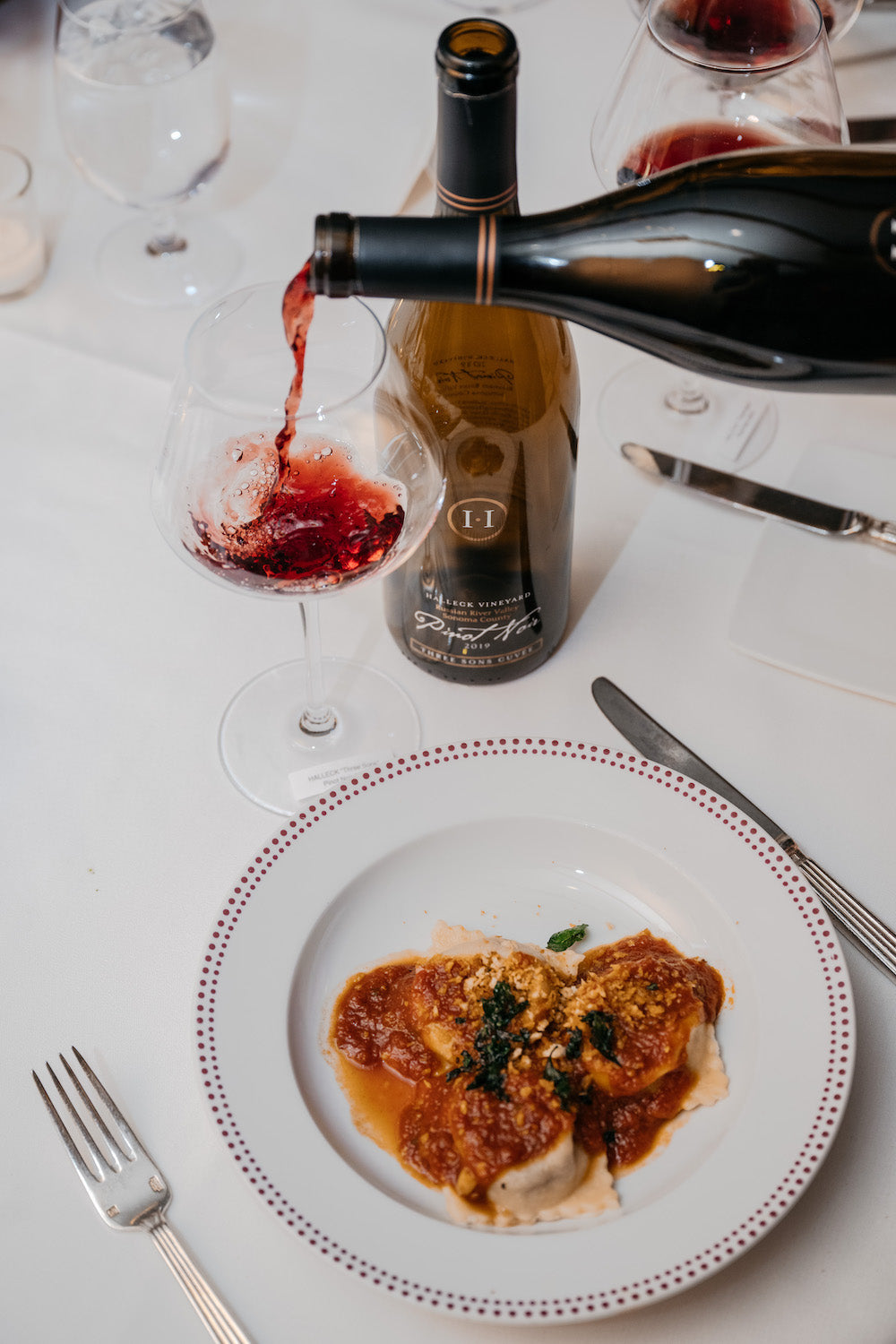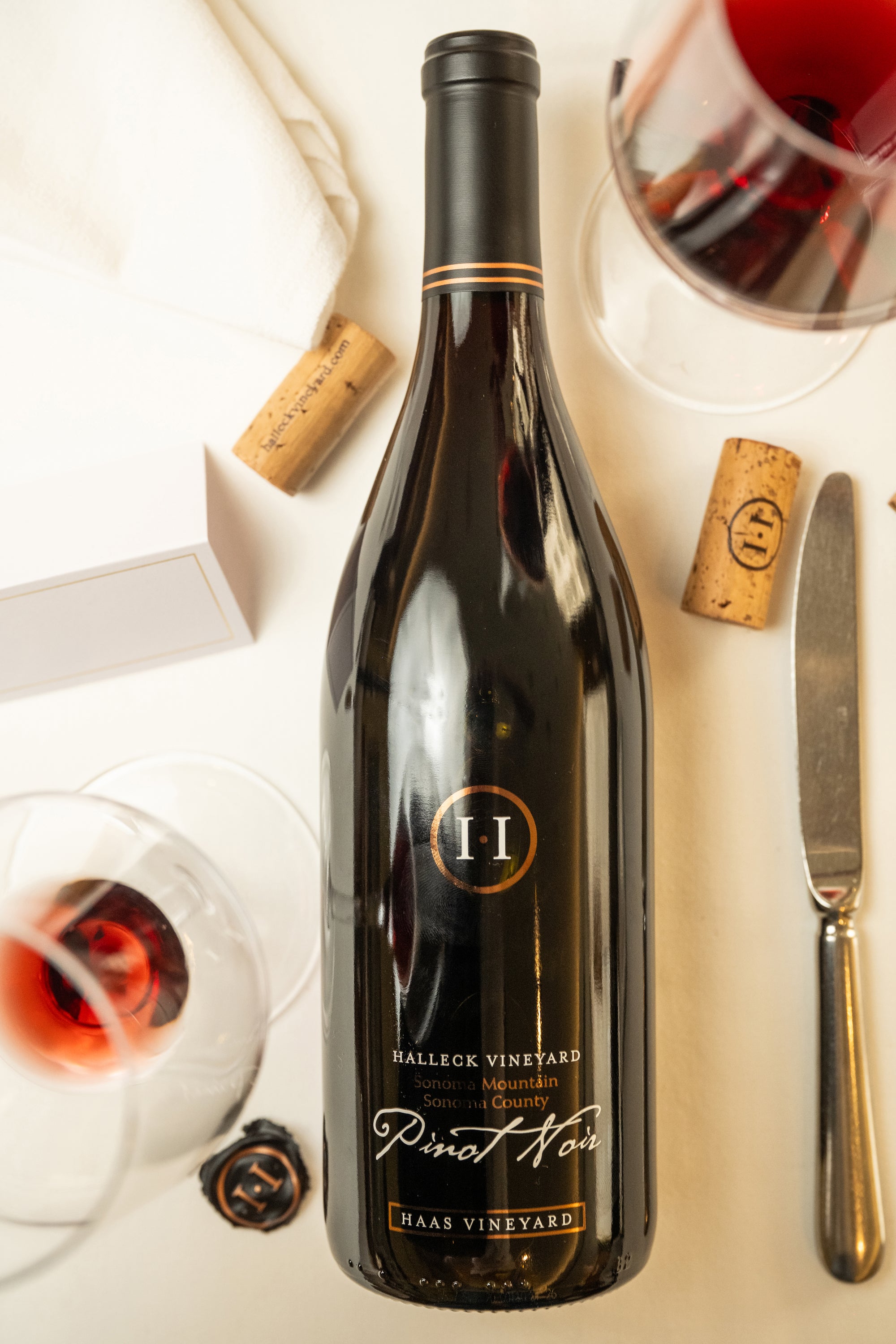Unique Wine And Food Pairings In Sonoma - Sonoma's Finest Wineries
Unique Wine And Food Pairings In Sonoma - Sonoma's Finest Wineries
Blog Article
Wineries With River Views - Greatest Wine Tasting Locations In Sonoma
Wine tasting is an art that requires practice and an understanding of assorted elements involved in the process. One crucial factor of wine tasting is the event and interpretation of tasting notes, which function a guide for both novices and seasoned connoisseurs. A Guide To Understanding Winery Wine Tasting Notes can enhance your wine-tasting experience, making it more meaningful and pleasant.
Tasting notes are concise descriptions that capture the essence of a wine’s flavors, aromas, and total character. Usually composed by professional tasters, winery tasting notes supply insights into the nuances of assorted wines. They can help wine enthusiasts perceive what to anticipate from a selected bottle. However, tasting notes can differ widely in style and detail based mostly on the writer's experience and palate.
Wineries That Offer Food Trucks On Weekends - Wine Tasting Experiences In Sebastopol
When you first strategy a glass of wine, your senses will start to have interaction immediately. The sight, smell, and taste of the wine will converge to give you a complete experience. Tasting notes typically start with the visible assessment, where the colour of the wine is taken into consideration. Shade performs a big role in indicating the wine’s age, grape selection, and even its flavor profile.
After assessing the visual side, the next step involves swirling the wine in the glass. This motion aerates the wine, permitting its aromas to awaken. Smelling the wine provides important insight into its complexity. The preliminary sniff can deliver a flood of scents that will embody fruity, floral, herbal, or earthy notes. This is commonly probably the most subjective a part of tasting, as individual experiences can dramatically differ.
In winery tasting notes, descriptors are sometimes categorized into primary, secondary, and tertiary aromas. Main aromas normally stem from the grape variety, secondary aromas derive from fermentation processes, and tertiary aromas come up from aging. Understanding these classes can help you respect the depth of a wine, and so they also provide the vocabulary to express your experience better.
Cultural Wine Experiences In Sonoma County - Enjoying A Vineyard In Sonoma
Following the olfactory encounter, your focus will shift to the taste of the wine. This is where the first characteristics—sweetness, acidity, tannins, alcohol—come into play. Tasting notes typically detail these flavors in multiple dimensions, together with the initial attack in your palate to the lingering end on your tongue. A high-quality wine will current a harmonious stability between these factors.
Whereas tasting, it's essential to ponder the physique of the wine, which could be described as light, medium, or full. The body contributes considerably to your general impression, helping you think about how the wine pairs with food or whether it stands alone as a sipping wine. Balancing the body with the opposite characteristics will give you a fuller understanding of what the wine has to supply.
The finish of the wine, also known as the aftertaste, is another important facet usually included in tasting notes. A lengthy, pleasant end often indicates the next quality wine, while a short or cloying aftertaste might suggest in any other case. Evaluating the finish can provide further perception into the wine's complexity and distinction.
Understanding the context of winery tasting notes is also priceless. Tasting notes can provide contextual details about the vineyard's location, climate, and grape-growing practices. This context adds one other layer of appreciation for the wine, permitting enthusiasts to connect the sensory experience with its origins, thus enhancing the enjoyment additional.
Family-Oriented Wine Tasting Venues In Sebastopol - Sebastopol Wine Country
Many wineries provide tasting notes on their websites or labels, usually written in an approachable but informative style. Nonetheless, not all winery tasting notes are created equal. Some may be overly technical, while others might prioritize marketing aptitude over insightful analysis. Learning to navigate these notes can arm you with the data to make knowledgeable decisions when selecting wines.
Participating in tastings at wineries can even deepen your understanding of wine tasting notes. Interacting with knowledgeable staff can provide you a extra hands-on approach to exploring different wines and the language used to explain them. Wineries Known For Handcrafted Wines. You May have the chance to ask questions, interact in discussions, and potentially refine your palate in real time.
Experimentation is crucial for mastering wine tasting notes. As you pattern different wines, try making your individual notes. Focus on describing the wine’s colour, aroma, taste, and end. Over time, you’ll develop a private vocabulary that resonates together with your sensory experiences. Every note you create will assist refine your palate, permitting you to appreciate wines at a deeper level.
Wineries Featuring Vineyard Tours - Sonoma Wine Tastings
In Sebastopol wineries conclusion, a Guide To Understanding Winery Wine Tasting Notes presents a complete framework for diving into the world of wines. It equips you with the methods and language essential to articulate your experiences. Whether Or Not you're a informal drinker or a dedicated aficionado, understanding and utilizing tasting notes can profoundly impact your wine journey. This knowledge not only enhances your enjoyment but also connects you deeply with the rich narratives each bottle tells. By embracing this journey, you become part of the beautiful mosaic of wine culture, where every sip unveils a brand new story waiting to be discovered.
- Wine tasting notes typically encompass quite so much of sensory descriptions, together with aroma, flavor, acidity, physique, and finish, allowing tasters to totally respect the wine's traits.
- To improve your understanding, familiarize your self with common wine terminology such as "tannins," "oakiness," or "terroir," which may help decipher the notes extra successfully.
- A systematic strategy to tasting involves first visually assessing the wine's color and readability, adopted by swirling to launch aromas, then inhaling and describing what you experience.
- Taking notes during tasting can help establish patterns over time, bettering your palate and making it easier to recall preferences for future selections.
- Do Not overlook the affect of food pairings; tasting notes can differ greatly when a wine is loved with complementary flavors, altering notion and delight.
- Pay attention to the wine’s vintage, as weather conditions in a given yr can significantly affect the ultimate product, including another layer to the tasting notes.
- Contemplate the winemaker's style and philosophy, which might shape the wine's profile and influence how its notes evolve with each sip.
- Training with totally different grape varieties can broaden your vocabulary; every type brings unique traits that may improve your capability to articulate tasting notes successfully.
- Participating with wine professionals or attending tasting events can present useful insights, offering a richer context for understanding personal tasting notes.
- Remember that tasting is subjective; individual preferences and experiences will form one’s interpretation of the identical wine, enriching the general enjoyment of wine exploration.
What are wine tasting notes?
Wine tasting notes are descriptive feedback made by tasters about the look, aroma, style, and finish of a wine. They present an outline of the wine's characteristics and may help consumers understand the style and high quality of the wine.
Wineries With Unique Tasting Experiences - Sonoma Wine Country Wineries To Explore
Why are tasting notes essential when selecting wine?
Tasting notes can guide you in selecting a wine that fits your palate. They provide insights into flavors and aromas, serving to you to match wines with food or occasions. Understanding these notes enhances your total wine experience.
How ought to I learn wine tasting notes?
(Remarkable Craft Wineries In Sebastopol)
Innovative Wine-Making Techniques In Sonoma Valley - Sonoma County's Best Wine Experiences

When reading wine tasting notes, pay consideration to the structure: search for descriptions of color, aroma, flavor, and finish. This will help you grasp the wine's profile and determine if it aligns along with your preferences.
What terms generally appear in wine tasting notes?
Widespread phrases include "tannin" (the structure), "acidity" (the crispness), "body" (the weight), and varied flavor descriptors like "fruity," "earthy," or "spicy." Familiarizing yourself with these terms can deepen your understanding of wine.
Wineries Located Near Russian River Valley - Sonoma's Finest Wineries

Am I Able To create my own tasting notes?
Yes! Writing your personal tasting notes can enhance your wine tasting experience. Focus on your observations of taste, aroma, and other sensory characteristics. This personal practice can help you refine your palate over time.
How do I identify the aromas in wine tasting notes?
Wineries Offering Private Events - Vineyard Visits And Wine Tasting In Sonoma
To determine aromas, practice smelling a wide range of scents and associating them with wines. Swirl the wine in your glass to release its aromas, then take a moment to breathe in deeply before identifying any outstanding scents.

What is the difference between professional and private wine tasting notes?
Professional tasting notes could use more technical language and particular terminology, whereas personal tasting notes are subjective and reflect particular person experiences. Each are valuable for understanding and having fun with see wine, however personal notes may resonate extra along with your unique tastes.
How can tasting notes enhance my wine appreciation?
Sonoma's Top Sparkling Wine Producers - Exploring Sonoma's Wine Landscape
Tasting notes can improve your appreciation by serving to you to grasp and articulate the complexities of wine. They encourage conscious tasting and supply a framework for comparing totally different wines, resulting in a richer enjoyment of the beverage.
Are there any apps or instruments to help with wine tasting notes?
Yes, there are a number of apps designed to help users report and manage their tasting notes. These instruments typically supply features like flavor wheel guides and wine database searches, making it easier to track your journey through completely different wines. Report this page